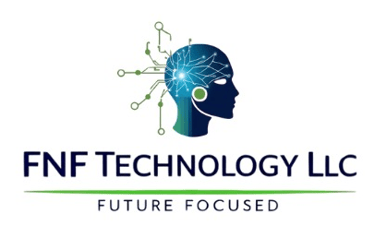Revolutionizing Attendance Tracking: The Rise of Facial Recognition Employee Attendance Systems
Facial recognition attendance system. Biometric employee attendance, AI attendance tracking. Touchless attendance system. Workforce automation tools
CCTV & SECURITY SYSTEMSOFFICE AUTOMATION & WORKFORCE TECHEMERGING TECH & AI
Ahmed & Fahad
9/12/20253 min read


Introduction to Facial Recognition Technology
Employee attendance tracking has come a long way from manual registers and punch cards. Today, businesses are increasingly turning to facial recognition employee attendance systems—a modern solution that combines accuracy, convenience, and security.
This technology not only streamlines workforce management but also provides valuable insights for HR and operations teams. Let’s explore how it works, its benefits, challenges, and why it’s shaping the future of attendance management.


Facial Recognition Employee Attendance Systems: The Future of Workforce Management
What is a Facial Recognition Attendance System?
A facial recognition attendance system is a biometric solution that uses AI-powered cameras and software to identify employees based on their unique facial features. Once verified, the system automatically marks attendance, eliminating the need for manual input, swipe cards, or fingerprint scanners.
The technology relies on:
High-resolution cameras (mounted at entrances)
Artificial intelligence & machine learning algorithms for face matching
Cloud or on-premises software to store and analyze data


Key Benefits of Facial Recognition Attendance Systems
1. Accuracy and Reliability
Unlike swipe cards or passwords, facial recognition eliminates proxy attendance (“buddy punching”) and ensures precise records.
2. Touchless & Hygienic
In a post-pandemic world, touchless systems are safer than fingerprint or card-based alternatives, reducing contact points in the workplace.
3. Time-Saving for HR Teams
Attendance is logged automatically, saving hours of manual reconciliation and reducing payroll errors.
4. Enhanced Security
Facial recognition systems can be integrated with access control, ensuring that only authorized staff can enter restricted areas.
5. Scalability
These systems can handle large employee databases, making them suitable for small businesses, enterprises, and even schools or government offices.
Key Benefits of Facial Recognition Attendance Systems
1. Accuracy and Reliability
Unlike swipe cards or passwords, facial recognition eliminates proxy attendance (“buddy punching”) and ensures precise records.
2. Touchless & Hygienic
In a post-pandemic world, touchless systems are safer than fingerprint or card-based alternatives, reducing contact points in the workplace.
3. Time-Saving for HR Teams
Attendance is logged automatically, saving hours of manual reconciliation and reducing payroll errors.
4. Enhanced Security
Facial recognition systems can be integrated with access control, ensuring that only authorized staff can enter restricted areas.
5. Scalability
These systems can handle large employee databases, making them suitable for small businesses, enterprises, and even schools or government offices.
Uses
Corporate Offices → Streamlined attendance & security access


Factories & Warehouses → Managing large shift-based workforces


Educational Institutions → Automated student and staff attendance
Healthcare Facilities → Ensuring hygienic, touch-free logging




Challenges and Considerations
While the technology is promising, businesses must consider:
Privacy Concerns → Employees may worry about how their biometric data is stored. Clear policies and compliance with data protection laws (like GDPR) are crucial.
Implementation Costs → Initial setup can be more expensive than traditional systems, though long-term ROI is significant.
Lighting & Environmental Factors → Poor lighting or obstructions can affect recognition accuracy, though modern AI is improving rapidly.
The Future of Attendance Systems
The adoption of AI and IoT will continue to push facial recognition systems forward. Integration with smart building automation, predictive analytics, and cloud-based dashboards will make workforce management even more seamless.
Companies investing in this technology today are not just modernizing attendance tracking—they are laying the foundation for smarter, more efficient workplaces.
Conclusion
Facial recognition employee attendance systems are revolutionizing how organizations manage time, security, and productivity. By offering accuracy, hygiene, and efficiency, they are quickly becoming the preferred choice over traditional attendance methods.
For businesses aiming to improve workforce management while embracing the latest in automation technology, this solution is a clear step forward.
Solutions
Comprehensive IT and security system solutions.
Support
© 2025. All rights reserved.
SALES
